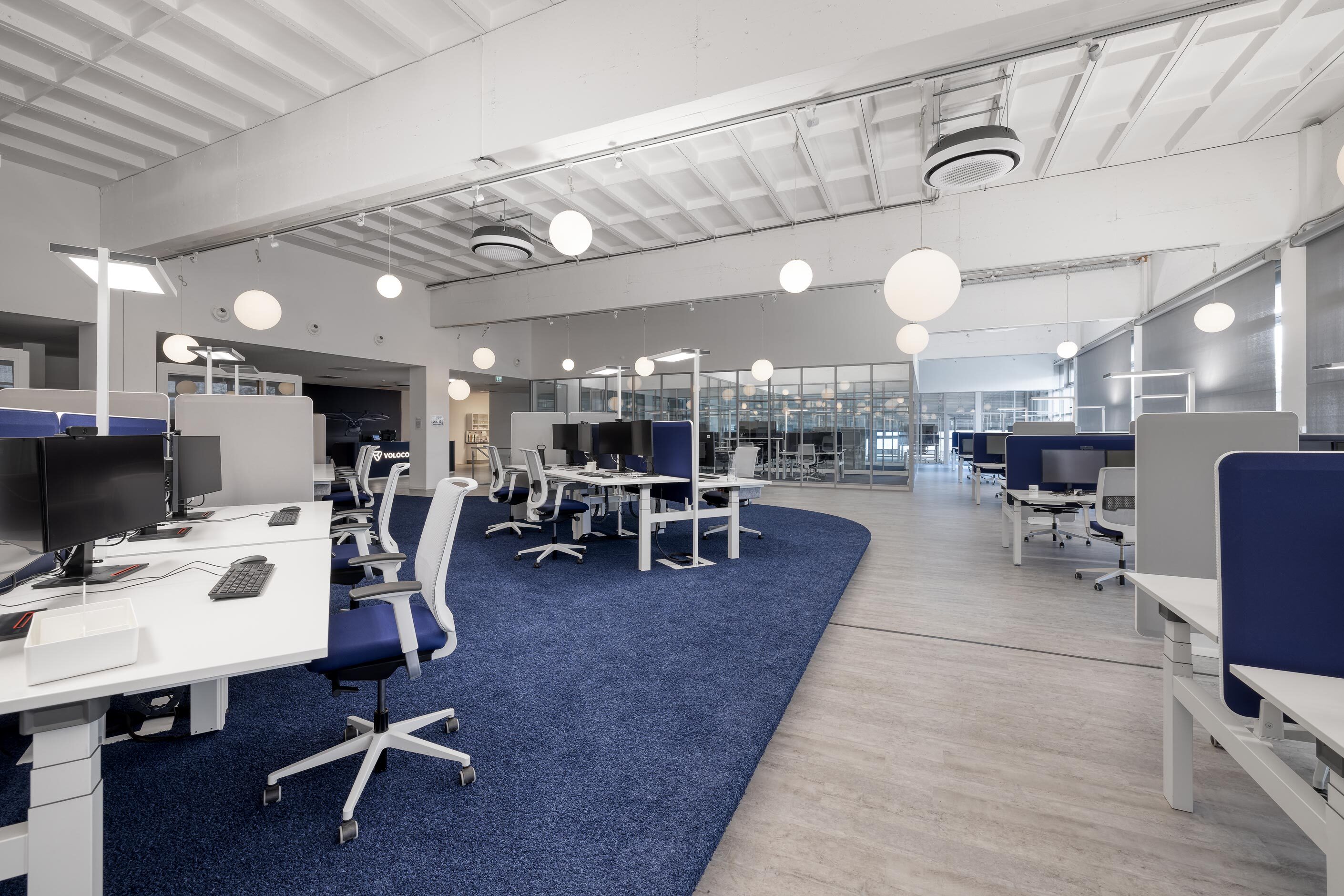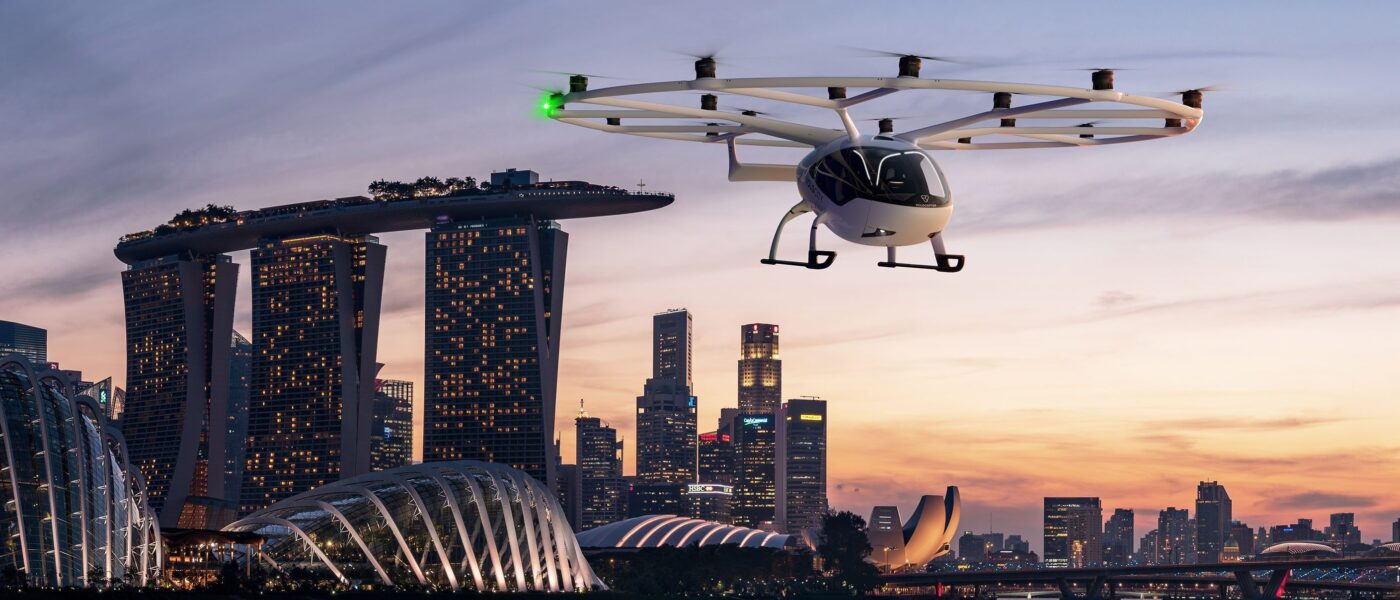
Volocopter expands its headquarters in Bruchsal
Ready for take-off: Reaching new heights in the flexible office
Their air taxis are scheduled to fly in the skies of Paris for the opening of the 2024 Summer Olympics: What still sounds like a future utopia to many is for the young aviation company Volocopter the envisaged goal of a journey that has already lasted more than ten years. A journey that has seen the company grow from just the two founders in 2011 to over 500 employees from 40 nations today.
Its vision is none other than to build the world’s first sustainable, scalable urban air-mobility business. Its affordable air-taxi service will aim to address the traffic congestion problems suffered in all major international cities using electrically-powered, safe, and quiet mini flying machines that operate in a newly-established air-taxi ecosystem.In order to expand capacities for development, testing and production of VoloCity, etc., Volocopter is currently expanding its main site in Bruchsal into its headquarters. We supported the air-taxi pioneers in expanding their office complex by implementing sensible spatial zones and equipping high-quality workstations according to the desk-sharing principle.
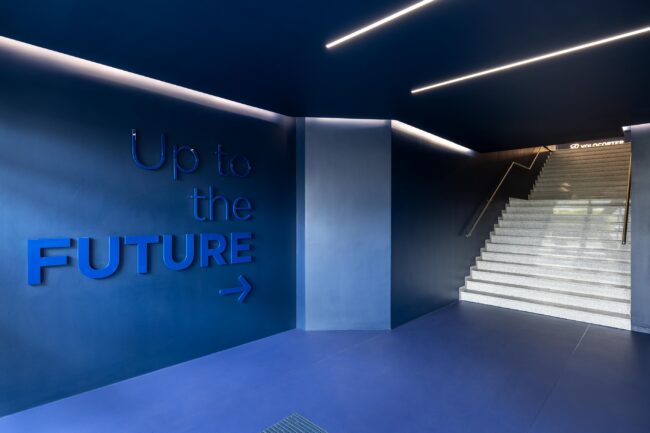
A workplace for forward thinkers and pioneers
It all started with the question: “Could you also transport passengers according to the drone principle?” Volocopter established itself in Bruchsal during its start-up phase.
In the meantime, the answer has become clear: Yes, you can. And so within a short space of time, Volocopter has become an internationally active company with sites in Bruchsal, Munich and Singapore, and one that is growing fast.
The rapid growth in the size of its workforce and the developments in the modern working world are also reflected in its newly created office spaces. Together, we have set them up according to the flexible office or desk-sharing principle.
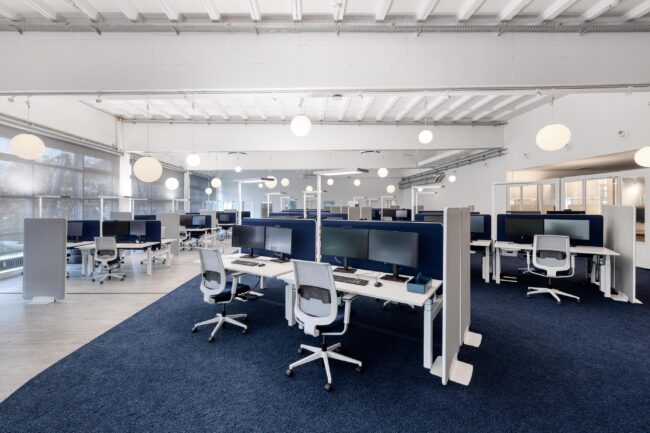
The flexible office as a new form of work organisation
The term ‘flexible office’ refers to a new way of organising work. The central component is the desk-sharing principle: Employees do not have a permanent workplace, and instead use any workplace that is currently available.
The concept of job sharing emerged from Silicon Valley tech giants such as Google and Facebook, who have been successfully practising desk-sharing for years. The idea behind it is that young and, above all, fast-growing companies do not normally have sufficient capital to provide all employees with a fully-equipped workplace. Moreover, the modern work environment, in which the home office and remote working have become normal, means that colleagues are rarely all in the office at the same time. In short, a company can have more employees than physical workplaces.
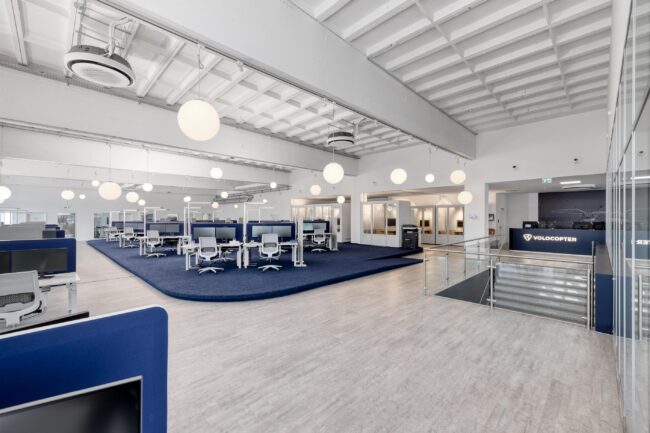
A flexible office needs fixed framework conditions
What sounds simple in theory requires some framework conditions for successful implementation:
Volocopter’s flexible office creates a level playing field for everyone. In order to avoid competition for supposedly better places, all the workplaces in an area are equipped in the same way. Height-adjustable desks and office chairs ensure that employees can set up and arrange their spaces individually. Despite all the flexibility, reliability is also needed. For this reason, Volocopter employees are able to book the workplaces online. This makes it possible to check the occupancy rate and ensures that everyone finds a place.
Leaving the workplace tidy every day is easily manageable with a simple organisation system. There are lockers for valuables that should remain in the office, while personal storage options include felt baskets that can be hung under any desktop.
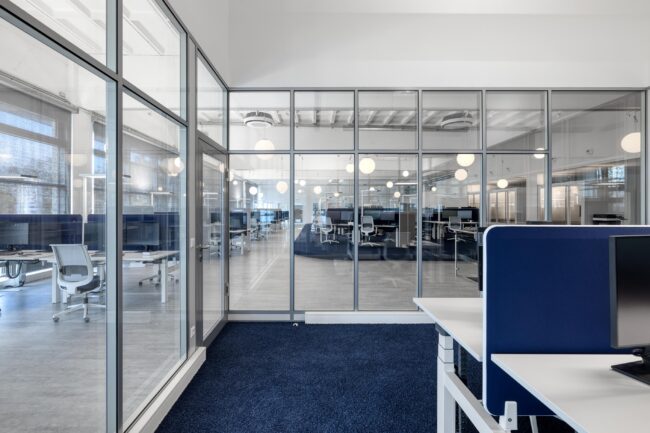
Mobility in its DNA, mobility in its thinking – the advantages of the desk-sharing principle
What advantages does Volocopter have through the desk-sharing principle? The supposed biggest advantage of the flexible office is obvious. The efficient use of space reduces the company’s costs and saves resources: Fewer workstations for more employees means less space, lower vacancy levels, lower equipment costs, and lower electricity and heating/cooling costs. In addition, the flexible office also positively impacts the company’s image: Flexible offices are evidence of a contemporary work setup and an open mindset – two factors likely to attract younger professionals and young talents in particular. Especially for a company that has mobility in its DNA, a flexible office means more than just sharing desks. The sharing principle does something to the way people work. The flexibility of the workplace automatically brings flexibility to thinking: workflows remain open, while neighbouring colleagues change flexibly. This in turn opens up new conversations, perspectives and synergies that have an impact on team cohesion, but also on the development of new ideas.
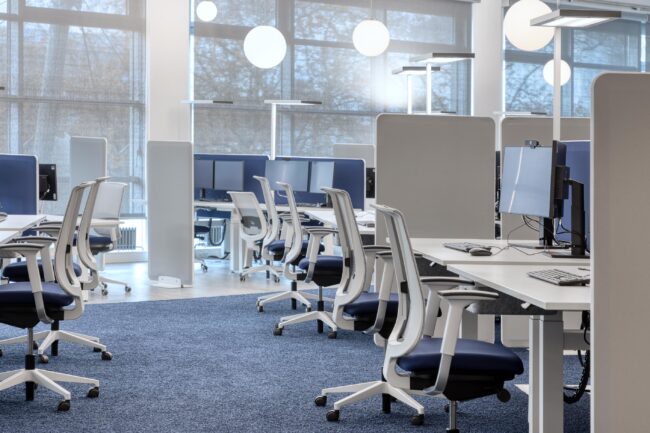
Flight taxi pioneers with a fixed “landing site” in Bruchsal
As much as Volocopter lives from and with mobility, the expansion of its headquarters makes one thing clear: Just as important as flexibility is a “landing site”, a headquarters that acts as a root and anchor point for promoting sustainable growth.
Here, the striking corporate design and corporate identity with slogans such as “Connecting Perspectives” and “We are mobility’s new dimension” merge into a single entity.
For example, the flooring, office swivel chairs and acoustic absorbers are all in Volocopter’s corporate blue colour.
The development of the modern working world – using Volocopter as an example – shows that what is needed are freer working models like working from home and new work organisational methods like desk sharing. But what is also still needed is a place where people can come together. Looking for inspiration for your flexible office? If so, visit us in our ErlebnisReich in the feco-forum.
We are at your service.
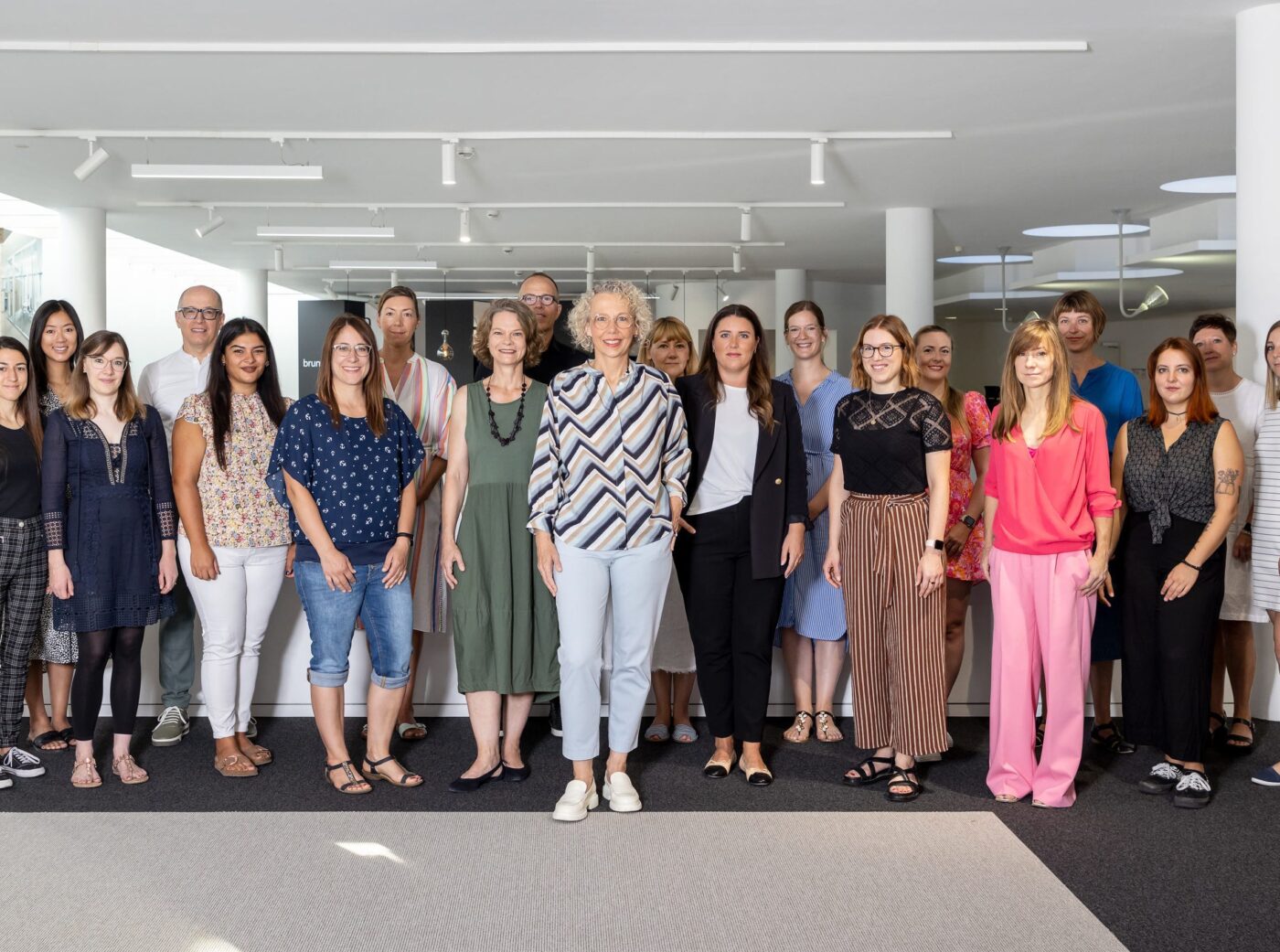
We are at your service.
Visit us in the feco-forum on more than 3.500 square meters.
Arrange a consultation.